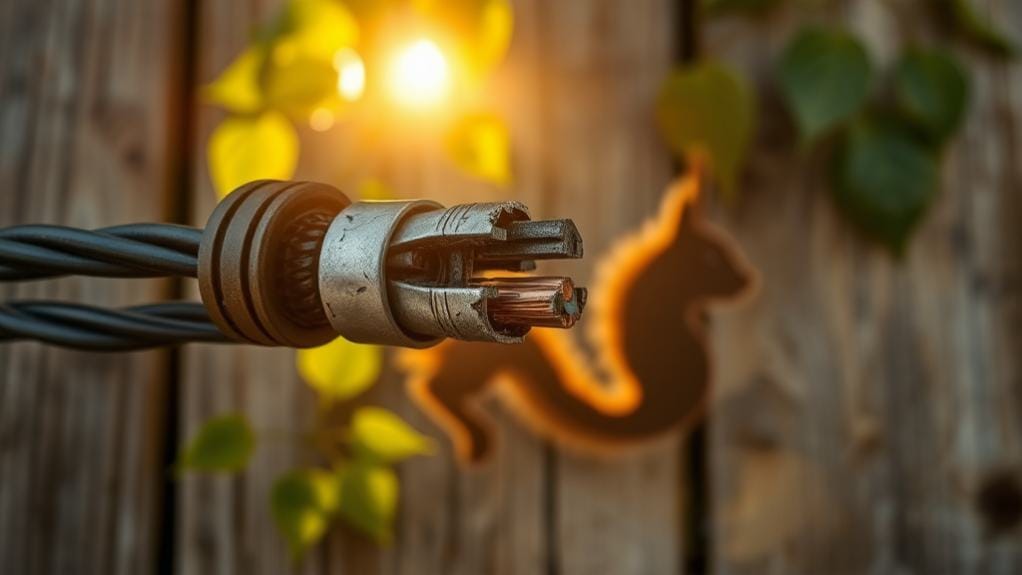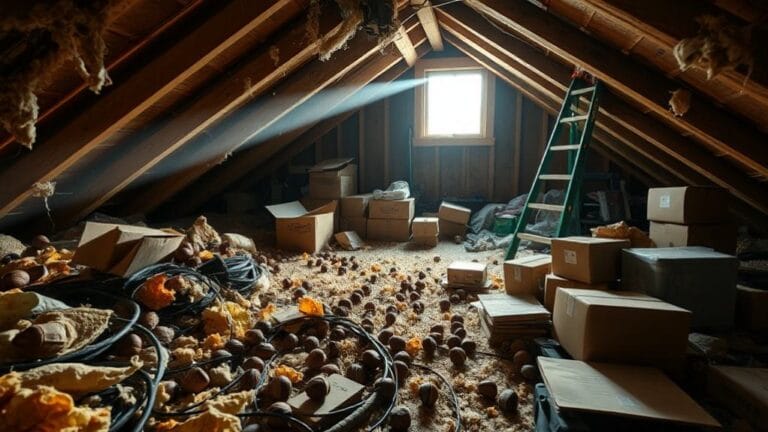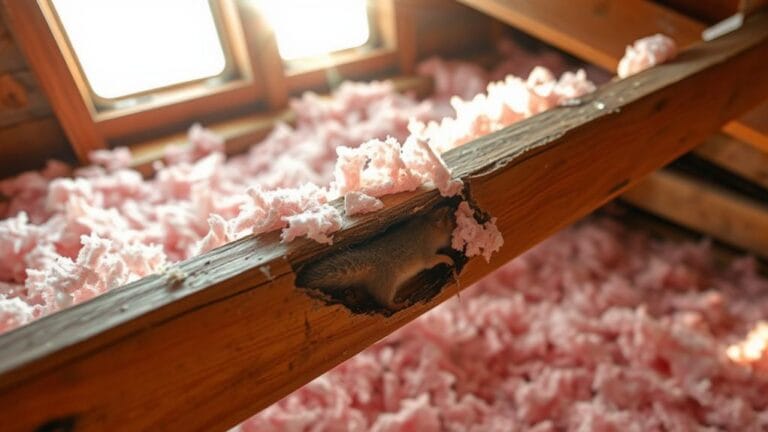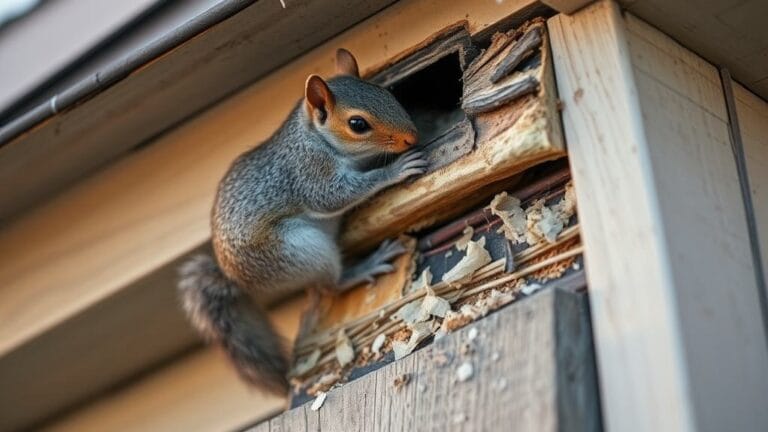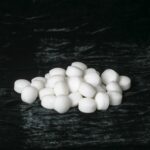Want to fix squirrel-chewed wires? First things first – turn off that circuit breaker unless you fancy becoming a human lightning rod. You'll need to thoroughly inspect the damage and document it with photos. Then grab identical replacement wiring, junction boxes, and proper connectors. But don't get cocky – this isn't a DIY Pinterest project. You'll need to install metal flex conduit over repairs and seal entry points with steel mesh to prevent future furry vandals. Most importantly, consider hiring a licensed electrician since one wrong move could turn your home into a toaster. There's a lot more to keeping those bushy-tailed menaces at bay.
Identifying Squirrel Wire Damage
Table of Contents
Three key characteristics help you identify squirrel wire damage in your home: clean knife-like cuts, exposed wiring, and nearby nesting materials.
You'll want to inspect these areas before those furry vandals turn your attic into an electrical disaster zone. While single-animal traps can help prevent ongoing damage, catching the culprits early is essential for protecting your wiring.
Here's what you're looking for:
- Clean, precise cuts through wire insulation (not messy tears)
- Romex cables with exposed metal conductors
- Droppings and nest debris around damaged areas
Pro Tip: Don't wait for your lights to start flickering before checking your attic. Regular inspections are your best preventive measures against extensive damage to wiring.
Document everything you find with photos. Yes, seriously – take pictures of every chewed wire you spot.
You'll need this evidence for both squirrel removal services and electricians. Trust me, they'll appreciate your thoroughness more than those squirrels appreciate your cables.
Safety Measures Before Repairs
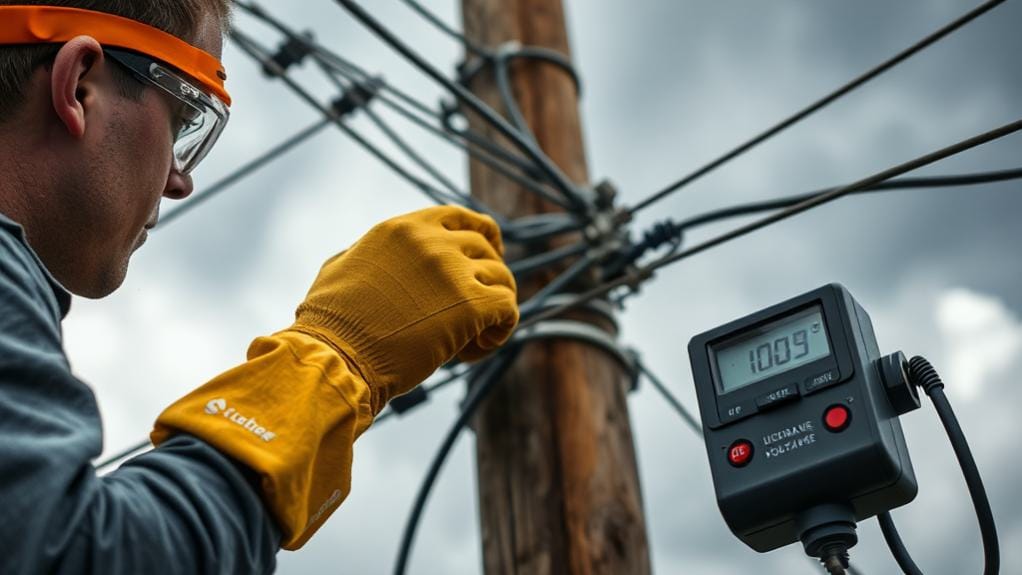
Two critical safety steps stand between you and those chewed wires. First, you'll need to shut off that power unless you fancy becoming a human light bulb! Squirrels and other wildlife can cause significant damage that creates serious fire hazards, so let's not add your crispy self to the mix.
| Safety Measure | Why It Matters |
|---|---|
| Circuit Breaker Off | Prevents shock & death |
| PPE Ready | Protects from hazards |
| Area Inspection | Spots hidden dangers |
Before you plunge into it, gear up with personal protective equipment – yes, those dorky safety goggles and gloves are non-negotiable. Pro tip: If you spot rodent droppings, hit the area with hospital-grade disinfectant first.Not feeling confident about these safety measures? There's no shame in calling a licensed electrician. Better safe than sorry when dealing with potentially lethal wiring issues!
Wire Repair Techniques
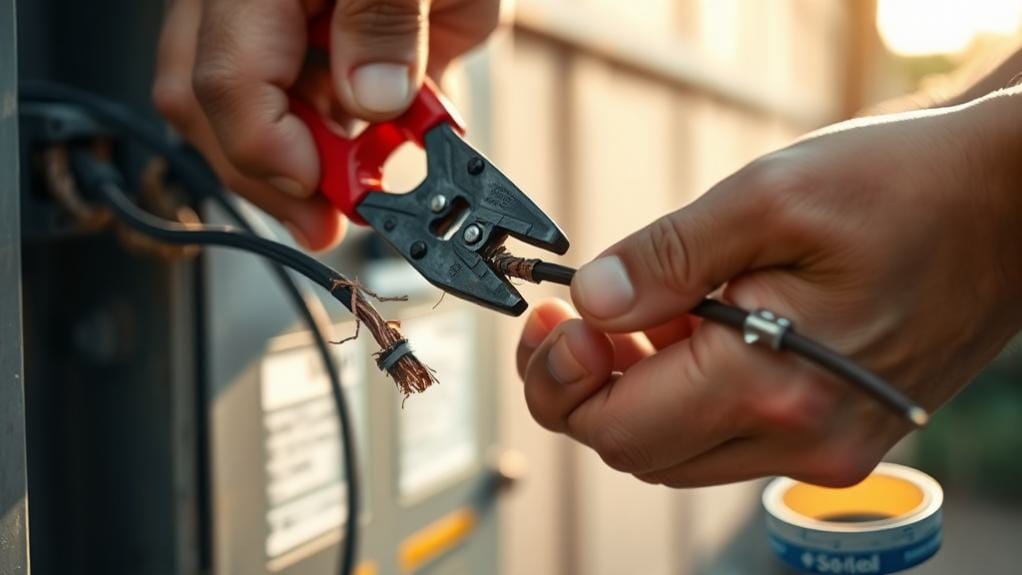
Rolling up your sleeves to fix squirrel-damaged wires requires a systematic approach to guarantee lasting repairs. Given the fire hazard risks from damaged electrical wiring, immediate attention is critical.
You'll need to replace the entire section of chewed wiring – no shortcuts here unless you want your house to become a toaster. The damage from these furry vandals can greatly reduce your home's safety.
- Inspect and document all chewed areas (yes, take pictures – your insurance company will thank you)
- Install junction boxes at repair points for easy future access
- Use identical wire types that match your existing setup
- Secure all connections with proper wire nuts and electrical tape
- Test thoroughly before closing everything up
*Pro Tip: Consider calling wildlife control services if you spot potential dangers beyond your skill level. Those pesky squirrels won't stop at one wire, trust me.*
Protecting Repaired Wiring Areas
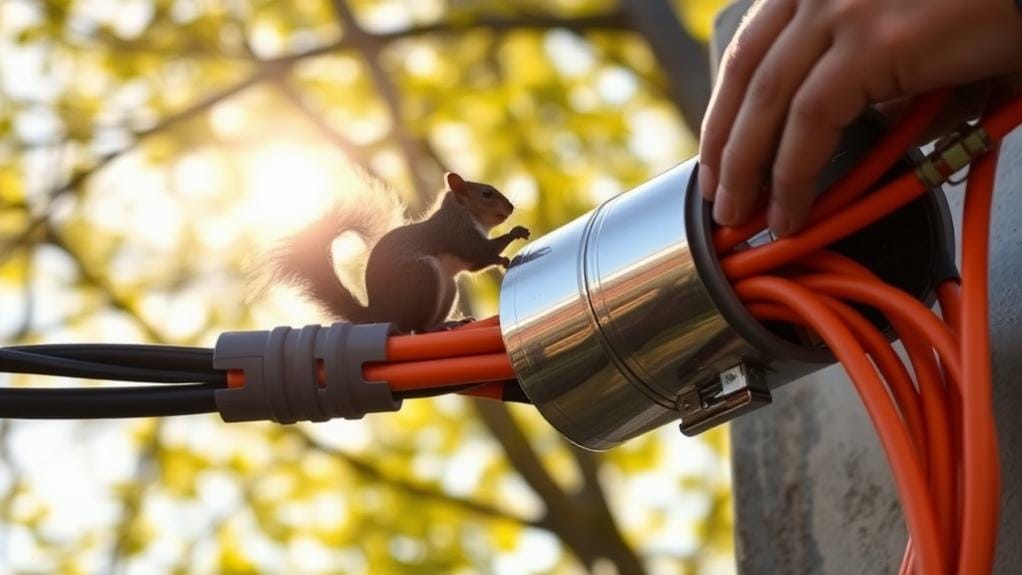
Every repaired wire needs a robust defense system against future squirrel attacks.
You'll need to protect the entire length of your newly fixed wiring – because let's face it, those furry troublemakers won't stop chewing on wires just because you asked nicely.
Ultrasonic repellents can provide an additional layer of protection by emitting high-frequency sounds that irritate squirrels while being undetectable to humans.
Here's how homeowners protect their wiring Safely and Humanely to prevent future infestations:
- Encase all repaired wiring in metal flex conduit – it's like giving your wires their own suit of armor.
- Seal every single gap around vents and chimneys with steel mesh or caulk.
- Apply capsaicin-based sprays near wiring (turns out squirrels hate spicy stuff too!).
- Keep your property clean and food-free – no need to roll out the welcome mat.
*Pro Tip: Check your attic monthly for new squirrel activity. Better to catch them plotting their next attack early!*
Long-Term Prevention Strategies
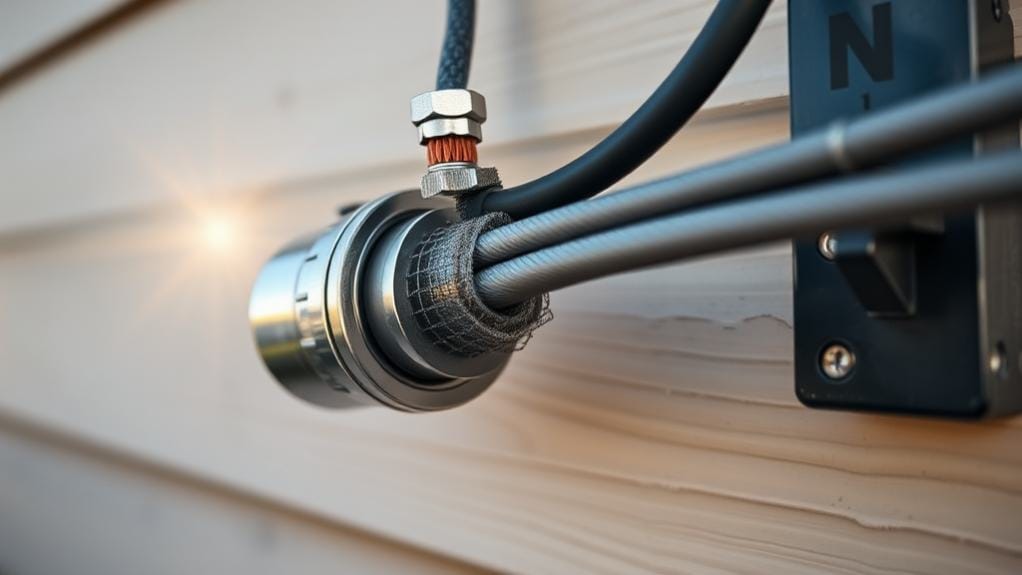
Now that you've protected your repaired wiring, implementing long-term prevention strategies will keep those pesky squirrels from turning your home into their personal chew toy.
Think of it as creating your own anti-squirrel fortress! Just like weight-activated ports on bird feeders that block heavier animals, you'll want multiple layers of protection for your wiring.
Here's your battle plan for long-term prevention:
- Get serious about regular inspections – catching those furry vandals early saves you big bucks.
- Install physical barriers like steel mesh – because squirrels can't chew what they can't reach.
- Apply deterrent sprays around vulnerable areas – nothing says "not tasty" like capsaicin.
- Keep those tree branches trimmed – don't give them a VIP access route to your roof.
- Establish a consistent monitoring wildlife activity schedule – being proactive beats being reactive every time.
Remember: Long-term prevention isn't just about today's fix – it's about keeping those wire-hungry critters away for good.
Frequently Asked Questions
How to Stop Squirrels Chewing Through Wires?
You'll need to install protective metal conduits, apply deterrent sprays, and trim overhanging branches. Regular wire inspections and removing food sources help prevent squirrels from accessing and damaging your electrical wiring.
What Can I Spray on Wires to Keep Squirrels Away?
Want to deter those pesky squirrels? You can spray Rataway directly on your wires to keep them away. Don't forget you'll need to reapply it regularly, especially after rain, for continued protection.
How Do I Protect My Car From Wire Gnawing Squirrels?
Park your car in a garage if possible, use protective wire conduits, and apply squirrel-repelling sprays. You'll also want to inspect regularly for damage and keep your parking area clean of any food sources.
How to Repair Chewed Attic Wires?
With squirrels causing $5 billion in annual property damage, you'll need to inspect your attic, replace damaged wires in junction boxes, and protect new wiring with metal conduit to prevent future chewing issues.
Last Word
Look, those bushy-tailed wire-chewers aren't going away – but you don't have to let them win. Sure, it's annoying to deal with damaged wires, but now you've got all the tools and know-how to handle it. You can't control squirrels (believe me, I've tried), but you can control how you protect your home's wiring. Fix the damage, install the barriers, and show those nutty vandals who's boss. Get to work!

